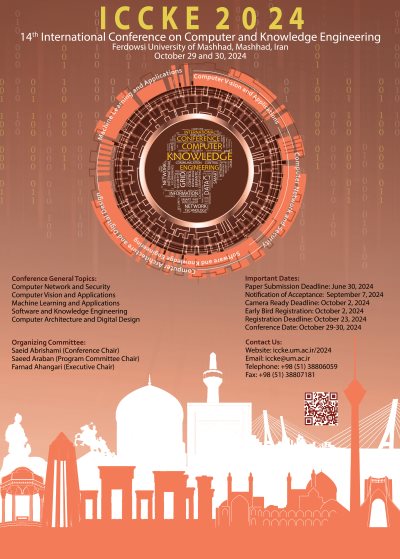0% Complete

Authors :
Keywords :
Abstract :
List of archived papers
Amin Rouzbahani - Fattaneh Taghiyareh
Ali Khaki - Ali Aghagolzadeh - Bagher Rahimpour Cami
Lim Zhen Xian - Ervin Gubin Moung - Jason Teo Tze Wi - Nordin Saad - Farashazillah Yahya - Tiong Lin Rui - Ali Farzamnia
Hediyeh Naderi Allaf - Mohsen Kahani
Seyed Ehsan Mahmoudi - Mehrnoush Shamsfard
Rezvan Mir - Abedin Vahedian
Niloofar Tahmasebi pouya - Mehdi Agha Sarram
Omid Nejati manzari - Amin Boudesh - Shahriar B. Shokouhi




